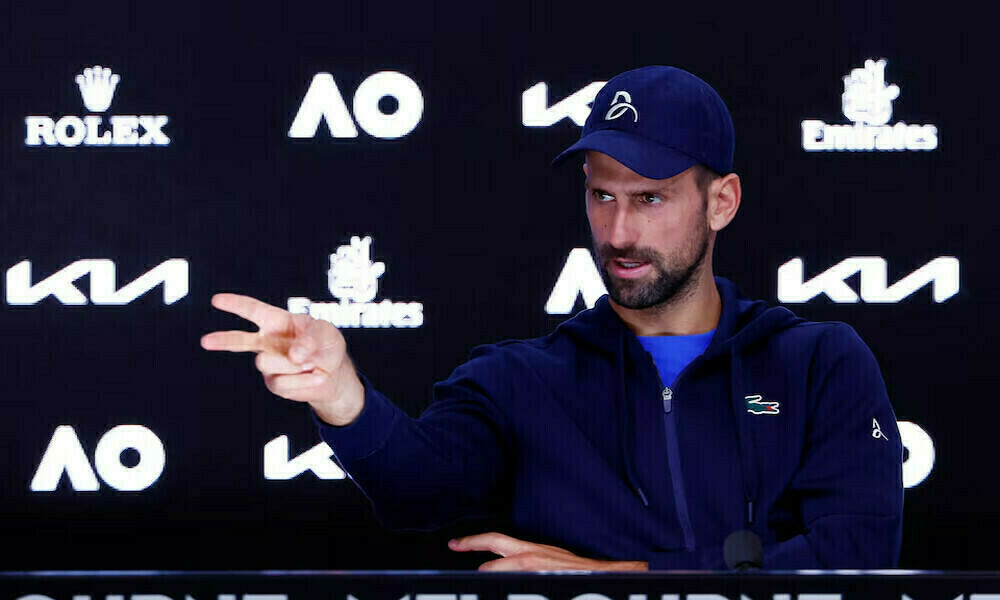
Djokovic claims that athletes think the anti-doping system is biased
In response to instances involving Jannik Sinner and Iga Swiatek, Novak Djokovic remarked that most players think the tennis anti-doping system is biased and demanded that it be redesigned.
While Swiatek received a one-month sentence at the end of 2024 after the prohibited drug trimetazidine (TMZ) appeared in her test, Sinner accepted a three-month doping penalty on Saturday after testing positive for the anabolic agent clostebol last year.
Although he was not implying that any of the Grand Slam winners had done anything improper on purpose, Djokovic did point out that the International Tennis Integrity Agency (ITIA) had treated them inconsistently.
During the Qatar Open on Monday, the 24-time Grand Slam champion stated, “The two cases of Iga Swiatek and Jannik Sinner have attracted a lot of attention and it’s not a good image for our sport.”
Most players don’t think the method is fair. Most players believe that favoritism is taking place. “It seems like you can almost influence the outcome if you are a top player, if you have access to the top lawyers and whatnot,” Djokovic continued.
Sinner’s case has drawn criticism from several players, both past and present, including Nick Kyrgios, Stan Wawrinka, and Tim Henman. Henman stated that it was “too convenient” as his punishment ended right before the French Open and Rome Masters.
According to Djokovic, who helped establish the Professional Tennis Players Association (PTPA) to represent professionals in the sport, the entire doping procedure is widely distrusted by his fellow sportsmen.
“I think right now it’s the ripe time for us to address the system, because the system and the structure obviously doesn’t work on anti-doping, it’s obvious,” the Serbian man, 37, added.
“I hope the governing bodies of our Tours and the tennis ecosystem will get together soon to attempt to figure out a better way to handle these procedures.
“It’s inconsistent and it appears to be very unfair.”
Sinner’s assertion that the positive test was caused by contaminated items used by his masseuse was accepted by the World Anti-Doping Agency (WADA), which had appealed after the Italian was exonerated last year.
“Sinner got suspended for three months because of the mistakes and the negligence of his team members that are working on the (ATP) Tour, so that’s also something that I personally, and a lot of players, find a bit strange,” Djokovic told reporters.
Djokovic said that in situations involving doping, like as those of Briton Tara Moore and Romanian Simona Halep, it appeared that the ITIA used somewhat different procedures.
“There are so many inconsistencies between the cases,” remarked the politician.
On social media, we’ve seen Simona Halep, Tara Moore, and a few other, perhaps lesser-known players who have been battling for years to get their cases resolved or who have been banned for years.
“We have to bear in mind that Sinner and Swiatek at the time were number ones in the world when we had those announcements happening,” he explained.
All Categories
Recent Posts
Tags
+13162306000
zoneyetu@yahoo.com



